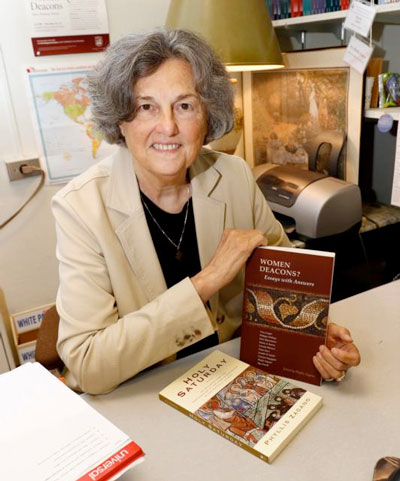
VATICAN CITY (CNS) – Pope Francis has appointed six men and six women to a commission to study the issue of women deacons, particularly their ministry in the early church.
In addition to 12 members, the pope tapped Archbishop Luis Ladaria Ferrer, secretary of the Congregation for the Doctrine of the Faith, to serve as president of the commission.
At least one of the members Pope Francis named to the commission – U.S. scholar Phyllis Zagano – has written extensively on the role of women deacons in the early church, arguing that they were ordained ministers and that women can be ordained deacons today. Zagano is a senior research associate in the religion department at Hofstra University in Hempstead, L.I.
Another U.S. scholar is Augustinian Father Robert Dodaro, president of the Pontifical Augustinian Institute in Rome and a professor of patristic theology specializing in the works of St. Augustine.
The other members are:
• Spanish Sister Nuria Calduch-Benages, a member of the Pontifical Biblical Commission;
• Francesca Cocchini, a professor of church history at Rome’s Sapienza University;
• Italian Msgr. Piero Coda, a member of the International Theological Commission;
• Spanish Jesuit Father Santiago Madrigal Terrazas, professor of ecclesiology, Pontifical Comillas University in Madrid;
• Angeline Franciscan Sister Mary Melone, rector of Rome’s Pontifical Antonianum University;
• Father Karl-Heinz Menke, retired professor of dogmatic theology at the University of Bonn;
• Rwandan Salesian Father Aimable Musoni, professor of ecclesiology at the Pontifical Salesian University in Rome;
• Jesuit Father Bernard Pottier, professor at the Institute of Theological Studies in Brusselsn;
• Marianne Schlosser, professor of spiritual theology at the University of Vienna;
• Michelina Tenace, professor of fundamental theology at Rome’s Pontifical Gregorian University.
